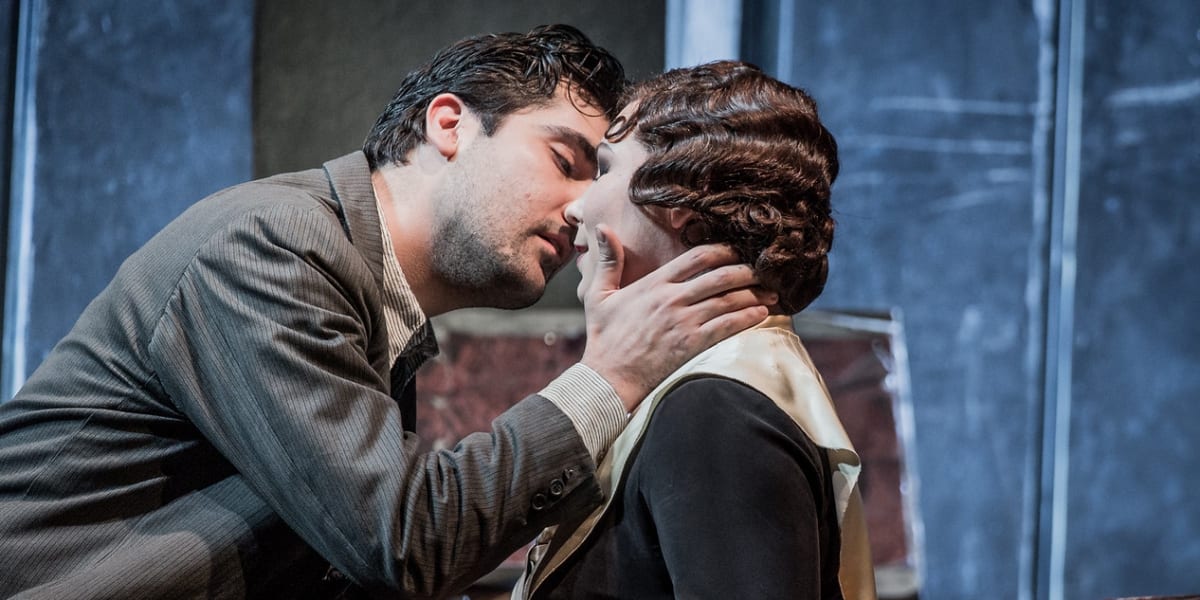This well-known and long-standing opera has truly stood the test time; even though this is the fourth revival of Miller’s adaptation, La Bohème still has a lot of life left in it. Its comedic libretto gives it a fresh stance and allows it to address tragedy through the lens of witticism, making La Bohème a real mixture of raucous merriment and gritty realism; it strikes the perfect balance between laugh-out-loud comedy and tear-jerking reality.
La Bohème follows the lives of a lively group of Bohemians and their partners amongst the challenges of Parisian life in the 1930s. The tragic love begins when Mimì (Natalya Romaniw), in seeking a light for her candle, calls at Rodolfo’s (Jonathan Tetelman) garret and promptly falls in love. This iconic moment marks the start of a passionate relationship that plays out amongst the hardships of poverty and the devoted companionship of good friends.
Vocally, this production cannot be faulted. Male voices dominate the vocal score and yet both Romaniw and Nadine Benjamin (Musetta) shine through. Romaniw’s soprano is enchanting and delicate, perfectly offsetting the comic banter of the four male Bohemians. Benjamin’s fusion of vocal precision with her highly self-confident and stroppy characterisation is stand-out; she embodies the energy of the bustling Café Momus. The goosebump moments, however, come from the duets of this production. Mimì and Rodolfo demonstrate haunting harmonies whilst Rodolfo and Marcello (played by Nicholas Lester), with their rich tones, project powerful and resonating vibratos that cascade around the London Coliseum. The entire cast more than do justice to Puccini’s respected score.
Other stand-out moments include the scenes where all four Bohemians are joking around as it makes their operatic style unusually conversational. The opera becomes casual; the audience laughs along with the light-hearted jokes and laugh at the farcical fighting with baguettes and attempted waltzing – emphasis on attempted. These four men, as well as Benoît (Simon Butteriss), have impeccable comic timing so that you just can’t help but chuckle to yourself. Especially during act one when Benoît, very loudly and far too proudly, exclaims that he is sixty and sexy!
Whilst the scenery is minimal, it is precise and deliberate. The rotating buildings allow the cast to smoothly transition between the garret and the streets of Paris. The Café Momus scene is full of life – the chorus of children alongside the customers of Momus create a lively evening in town. In fact, the presence of background action is a constant. Even during the heart-breaking duet where Rodolfo and Mimì agree to part, there is a drunkard stumbling around upstage and an argument between Marcello and Musetta is being played out in an upstairs apartment – life never stops. As a result, the sparse but effective staging really places the vocal and acting performances at the forefront.
It is, therefore, a great shame that these performances, that have been so perfectly crafted, are sometimes drowned out by the orchestra. There is a lack of balanced volume concerning the singers and the musicians which, at times, makes it seem like an amateur production. Respectively, both the orchestra and the cast are so brilliant that it is a shame that the heavy emotional atmosphere is somewhat diluted by having to strain to hear the vocals.

